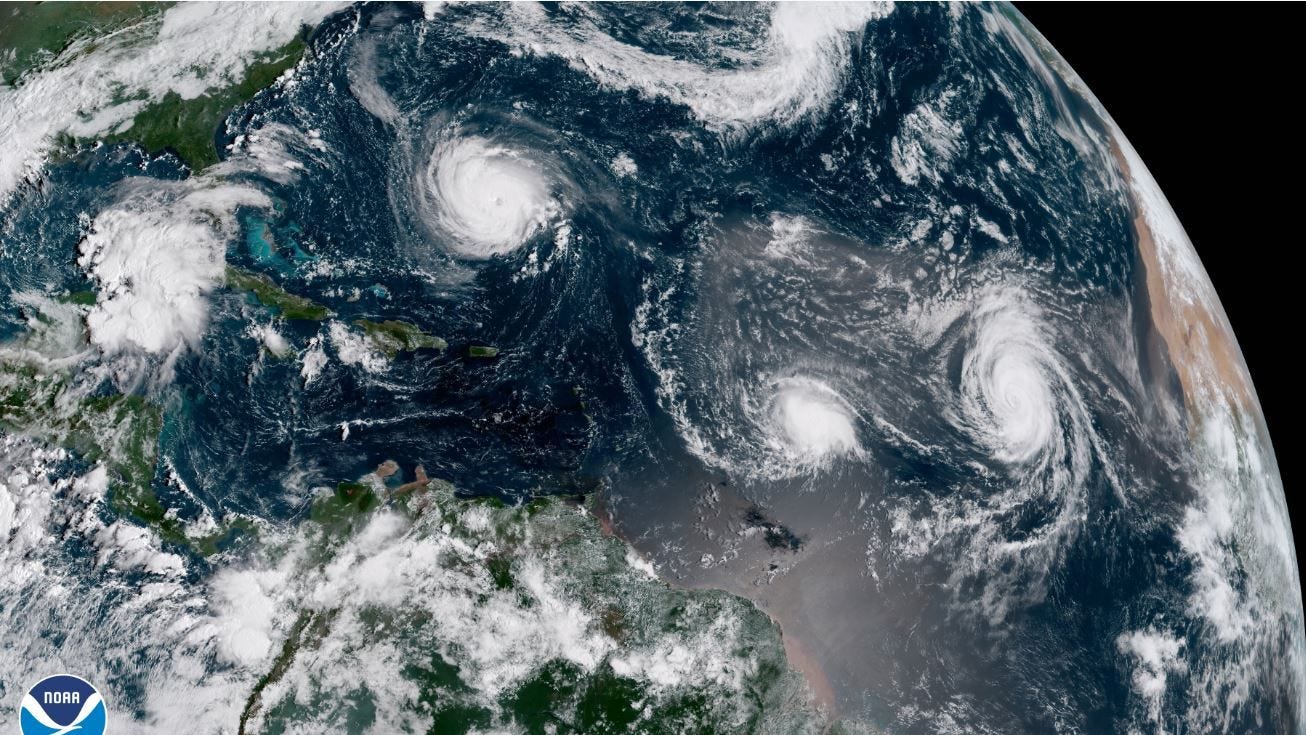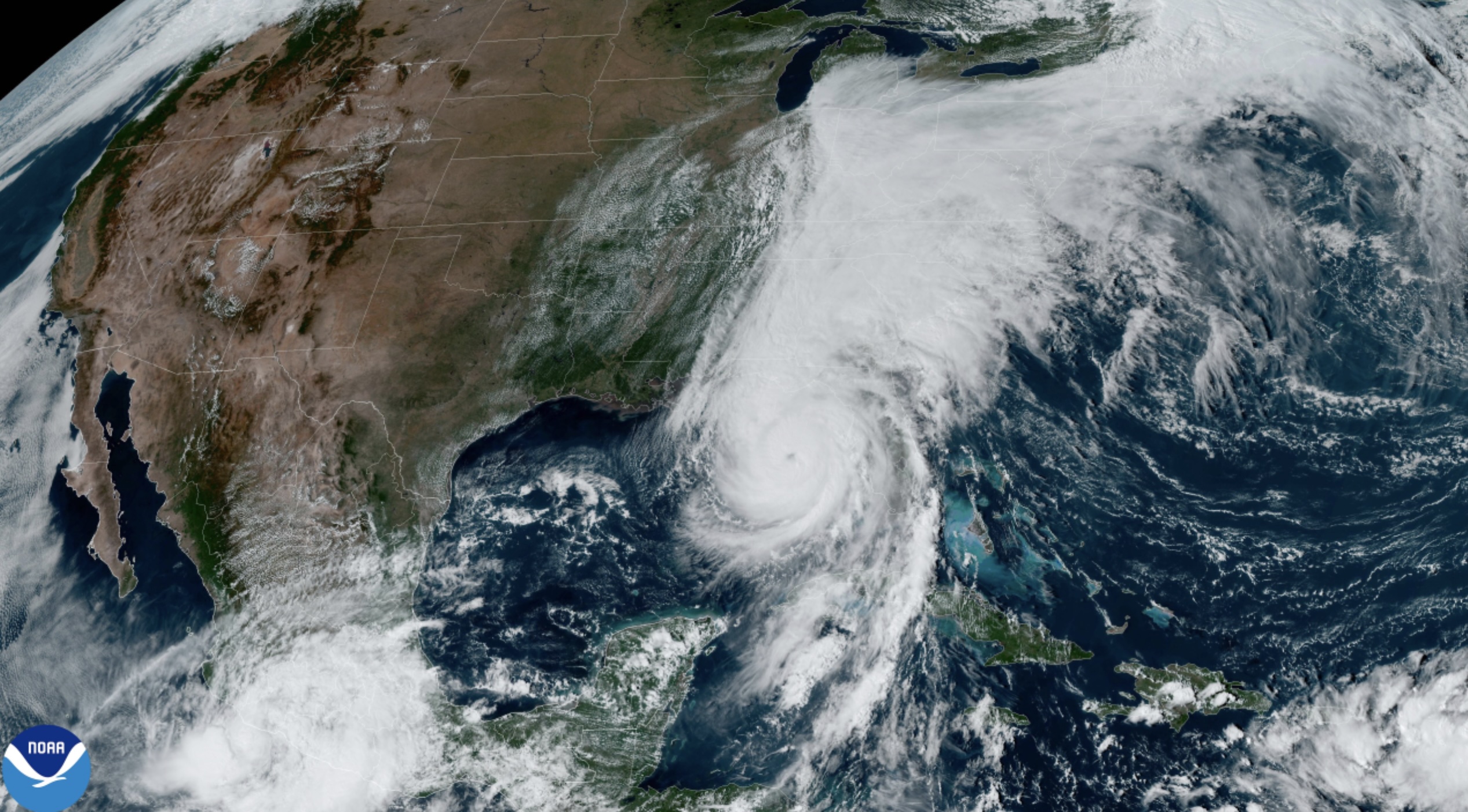Evaluating Hurricane Forecast Models: A 2025 Guide

Welcome to your ultimate source for breaking news, trending updates, and in-depth stories from around the world. Whether it's politics, technology, entertainment, sports, or lifestyle, we bring you real-time updates that keep you informed and ahead of the curve.
Our team works tirelessly to ensure you never miss a moment. From the latest developments in global events to the most talked-about topics on social media, our news platform is designed to deliver accurate and timely information, all in one place.
Stay in the know and join thousands of readers who trust us for reliable, up-to-date content. Explore our expertly curated articles and dive deeper into the stories that matter to you. Visit Best Website now and be part of the conversation. Don't miss out on the headlines that shape our world!
Table of Contents
Evaluating Hurricane Forecast Models: A 2025 Guide
Hurricane season is a time of intense preparation and anxiety for millions living along coastlines. Accurate forecasting is paramount, yet predicting the path and intensity of these powerful storms remains a complex challenge. This guide will help you understand how hurricane forecast models work and how to evaluate their reliability in 2025 and beyond. Knowing how to interpret these predictions is crucial for making informed decisions about your safety and preparedness.
Understanding Hurricane Forecast Models:
Hurricane forecasting relies on sophisticated computer models that ingest vast amounts of data. This data includes:
- Satellite imagery: Provides crucial information on storm size, intensity, and cloud structure.
- Weather radar: Offers detailed insights into rainfall, wind speed, and storm development.
- Surface observations: Data from weather buoys, ships, and coastal stations provide ground-level information.
- Atmospheric data: Information on temperature, pressure, humidity, and wind patterns at various altitudes.
These models, such as the Global Forecast System (GFS), the European Centre for Medium-Range Weather Forecasts (ECMWF), and the Hurricane Weather Research and Forecasting (HWRF) model, use complex equations to simulate the atmosphere and predict the hurricane's future track and intensity. Each model has its own strengths and weaknesses, and their outputs aren't always in perfect agreement.
How to Evaluate Hurricane Forecast Model Reliability:
Several factors influence the reliability of a hurricane forecast, and understanding these can improve your interpretation:
- Forecast lead time: Accuracy decreases with longer lead times. A 5-day forecast is inherently less reliable than a 2-day forecast.
- Model consensus: When multiple models show a similar prediction, confidence in the forecast increases. Look for agreement amongst the major models.
- Model skill: Historical performance data can be used to assess the skill of individual models. Meteorological agencies often publish this information.
- Intensity forecasts: Predicting hurricane intensity is more challenging than predicting its track. Pay close attention to the cone of uncertainty, which represents the potential path, and understand that intensity forecasts are subject to greater uncertainty.
- Data quality: The accuracy of the input data directly impacts the reliability of the forecast. Limitations in data coverage, especially over the open ocean, can affect the accuracy.
Beyond the Cone:
The familiar "cone of uncertainty" visualizes the potential path of a hurricane's center. It's important to understand that tropical-storm-force winds can extend far beyond the cone, potentially impacting a much wider area. Don't solely rely on the cone's boundaries for your safety planning.
Resources for Evaluating Hurricane Forecasts:
Several resources can help you access and interpret hurricane forecasts:
- National Hurricane Center (NHC): The primary source for official hurricane forecasts in the US. [Link to NHC website]
- National Oceanic and Atmospheric Administration (NOAA): Provides comprehensive weather information and forecasts. [Link to NOAA website]
- European Centre for Medium-Range Weather Forecasts (ECMWF): Offers global weather forecasts, including hurricane predictions. [Link to ECMWF website]
Preparing for Hurricane Season:
Regardless of the forecast's precision, preparation is key. Develop a comprehensive hurricane preparedness plan that includes:
- Evacuation plan: Know your evacuation zone and routes.
- Emergency supplies: Stock up on food, water, medicine, and other essentials.
- Insurance: Ensure you have adequate home and flood insurance.
By understanding the limitations and strengths of hurricane forecast models and using reliable resources, you can make informed decisions to protect yourself and your family during hurricane season. Remember, preparedness is your best defense.

Thank you for visiting our website, your trusted source for the latest updates and in-depth coverage on Evaluating Hurricane Forecast Models: A 2025 Guide. We're committed to keeping you informed with timely and accurate information to meet your curiosity and needs.
If you have any questions, suggestions, or feedback, we'd love to hear from you. Your insights are valuable to us and help us improve to serve you better. Feel free to reach out through our contact page.
Don't forget to bookmark our website and check back regularly for the latest headlines and trending topics. See you next time, and thank you for being part of our growing community!
Featured Posts
-
 2025 Hurricane Season Forecast And Preparedness Tips
May 29, 2025
2025 Hurricane Season Forecast And Preparedness Tips
May 29, 2025 -
 Active Hurricane Season Expected Above Normal Conditions Could Bring 10 Hurricanes To Us
May 29, 2025
Active Hurricane Season Expected Above Normal Conditions Could Bring 10 Hurricanes To Us
May 29, 2025 -
 Chinese Chemical Plant Hit By Powerful Explosion Casualties Reported Rescue Teams Respond
May 29, 2025
Chinese Chemical Plant Hit By Powerful Explosion Casualties Reported Rescue Teams Respond
May 29, 2025 -
 The Return Of The Screwworm Fly A Looming Threat
May 29, 2025
The Return Of The Screwworm Fly A Looming Threat
May 29, 2025 -
 Antonio Filosa Appointed Stellantis Ceo Challenges And Opportunities Ahead
May 29, 2025
Antonio Filosa Appointed Stellantis Ceo Challenges And Opportunities Ahead
May 29, 2025
Latest Posts
-
 Deodorant Recall Alert 67 000 Units Recalled Across Walmart Dollar Tree Amazon
Jul 17, 2025
Deodorant Recall Alert 67 000 Units Recalled Across Walmart Dollar Tree Amazon
Jul 17, 2025 -
 Life After Love Island Usa Amaya And Bryans Relationship Update
Jul 17, 2025
Life After Love Island Usa Amaya And Bryans Relationship Update
Jul 17, 2025 -
 September 2025 Ynw Melly Faces Retrial In Double Homicide Case
Jul 17, 2025
September 2025 Ynw Melly Faces Retrial In Double Homicide Case
Jul 17, 2025 -
 Love Island Usas Amaya And Bryan Building A Future Beyond The Villa
Jul 17, 2025
Love Island Usas Amaya And Bryan Building A Future Beyond The Villa
Jul 17, 2025 -
 September Retrial For Ynw Melly On Murder Charges After Jury Fails To Reach Verdict
Jul 17, 2025
September Retrial For Ynw Melly On Murder Charges After Jury Fails To Reach Verdict
Jul 17, 2025
